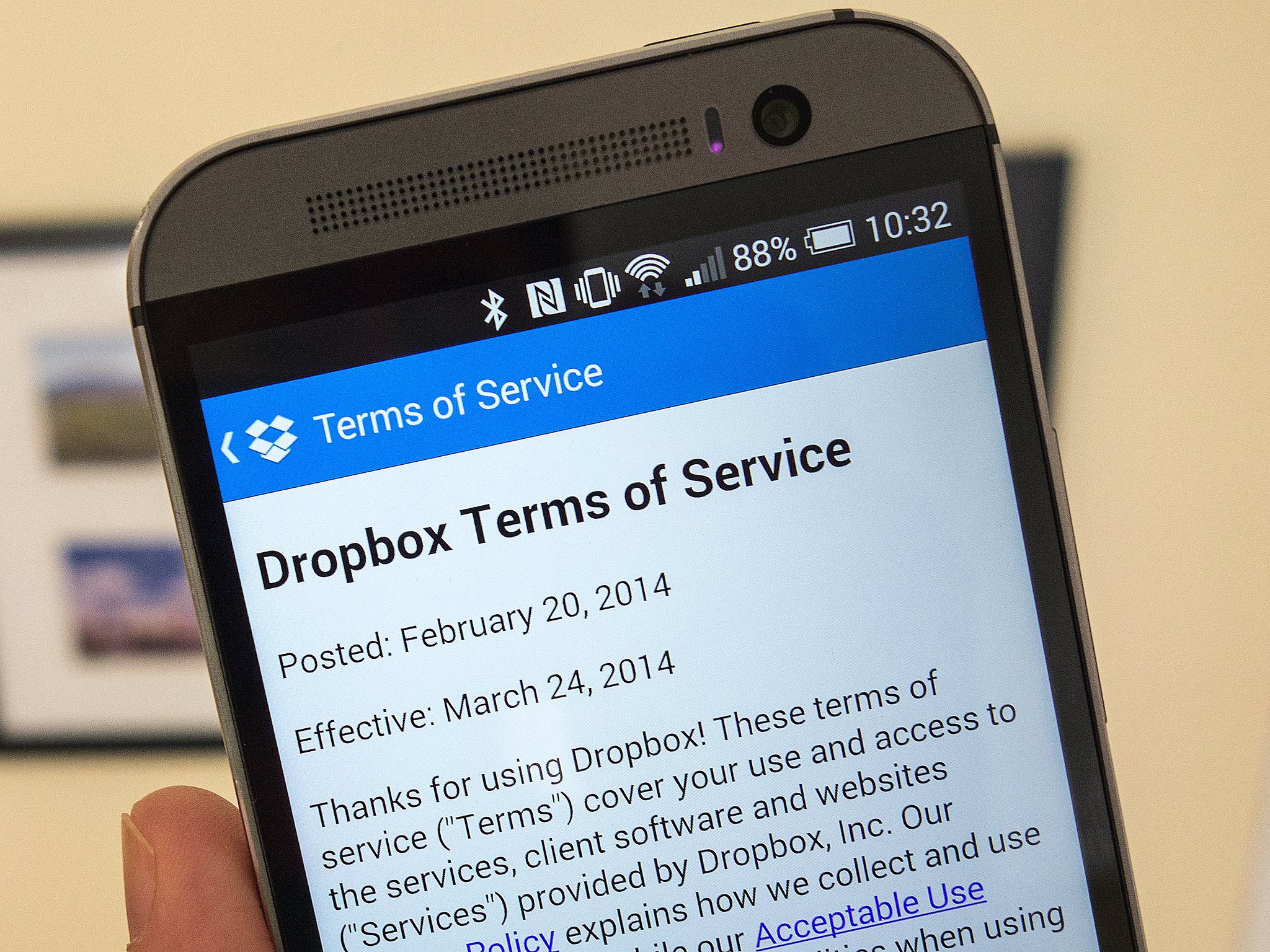About that Dropbox DMCA thing ...

Dropbox (or any other service) complying with DMCA takedowns isn't really a new thing
There's a bit of a to-do this weekend over Dropbox and the DMCA and whether your files are being scanned, even though they're your files. Twitter user Darrell Whitelaw's post is getting shared all over the place, noting that sharing was disabled under some DMCA rules. The folder was private, contained copyrighted material, and a share link to the folder was shared, albeit not publicly.
Here's the thing, though:
Yes, Dropbox can limit sharing access to your files. And, no, this isn't exactly new. (Update: TechCrunch's Greg Kumparak has a great explainer on how all this works.)
We can easily look back to 2012, when our pals at WPCentral were passing around an Xbox 720 document that had leaked out after Microsoft had killed it at the original source, Scribd. Only, they found they couldn't pass it around via Dropbox, because Microsoft got to it there as well.
This has gained traction this week because Dropbox's most recent ToS went into effect March 24.
wow. @dropbox DMCA takedown in personal folders . . . this is new to me. pic.twitter.com/fSKxJUrFuswow. @dropbox DMCA takedown in personal folders . . . this is new to me. pic.twitter.com/fSKxJUrFus— dw (@darrellwhitelaw) March 30, 2014March 30, 2014
We tend to take sharing services for granted — especially when they're as easy to use as Dropbox is. But the moment you attach a folder or file to Dropbox, that folder or file is subject to Dropbox's terms of service. (We're picking on Dropbox here, but this rings true for any service that's not your own.) It all comes down to the terms of service, of course. In the case of Dropbox, they're pretty easy to find and are written in plain English. A few examples:
From the main Terms of Service page:
Get the top Black Friday deals right in your inbox: Sign up now!
Receive the hottest deals and product recommendations alongside the biggest tech news from the Android Central team straight to your inbox!
You're responsible for your conduct, Your Stuff and you must comply with our Acceptable Use Policy. Content in the Services may be protected by others' intellectual property rights. Please don't copy, upload, download or share content unless you have the right to do so.We may review your conduct and content for compliance with these Terms and our Acceptable Use Policy. With that said, we have no obligation to do so. We aren't responsible for the content people post and share via the Services.
Pretty straightforward. Your stuff is your stuff, but Dropbox can "review" your stuff, which makes sense because even though it's still your stuff, and while it doesn't want anything to do with your stuff, really, it's facilitating you being able to sync your stuff over multiple computers, and share it with others. So it does have some skin in the game. That said, Dropbox says it has "no obligation to do so" and that "we aren't responsible for the content people post and share." That's a bit of a hedge, but one of those lawyerly ones that basically says "We don't have to do this, but we're going to because it's better than getting in a big battle with the copyright holders over it."
It's also worth visiting Dropbox's Copyright page, which spells out what we all too often forget:
You do not have the right to share files unless you own the copyright in them or have been given permission by the copyright owner to share them. Purchasing or legally acquiring video, music, ebooks, or software does not give you the right to share that material with third parties over the Internet.
The short version? Owning a copy of something isn't the same as owning the right to share it. There are times that this makes sense. And there are times that this is ridiculous and stupid and completely frustrating. It doesn't matter if you actually pay Dropbox (or any other service) for space — you're still subject to its rules.
The good news is that in Dropbox's case, they're not deleting what's in your folder. They're just limiting your ability to share it. (Although Dropbox does say it could delete information if it wanted to.) Our recommendation? If you've got something you need to share but don't want someone else to know you're sharing it, use something you control. BitTorrent Sync is one popular option. Rolling your own is another. And then there's the good ol' sneakernet.
